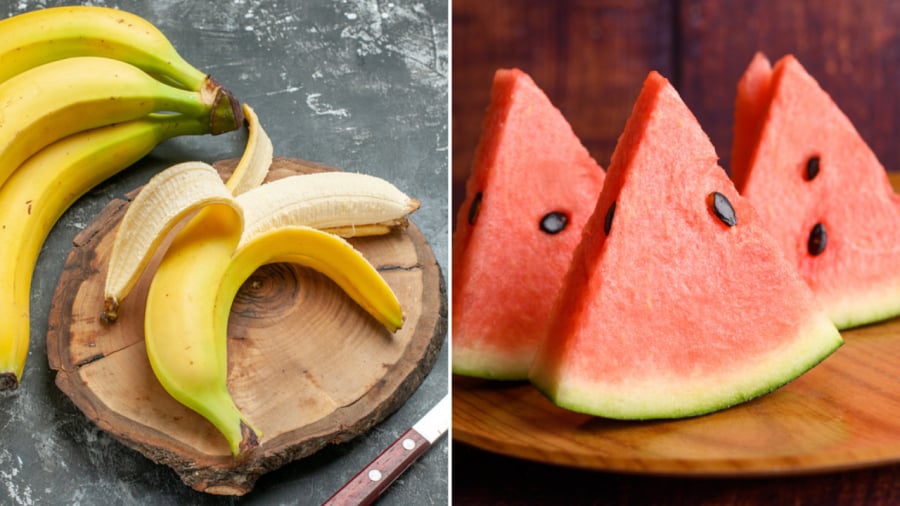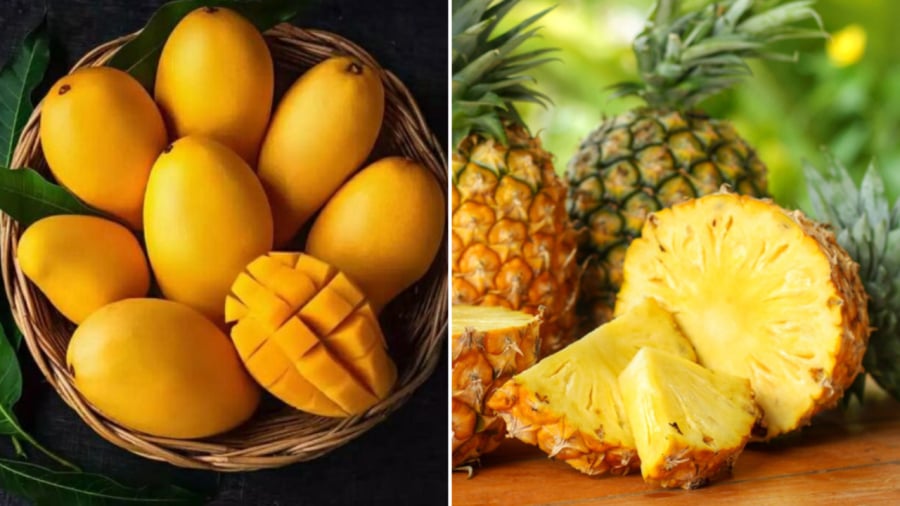Smoothies and fruit juices are a great way to stay refreshed while also consuming essential nutrients. Creating delicious blends often involves combining various fruits, but certain pairings can reduce their nutritional value or even cause unforeseen harm.
Here is a list of fruit combinations that you may want to avoid:
Banana and Watermelon

Oranges and carrots don’t make a good juice pair.
While orange and carrot juice is a popular combination, it’s important to note that the vitamin C in oranges can cause acid reflux when mixed with carrots. Over time, this can lead to kidney-related issues. It’s best to limit the combination of vitamin C-rich fruits and vegetables with carrots in your juices.
Turnip and Apple, Pear, or Grape
Apples, pears, and grapes contain a compound called ketone. When combined with the sulfur cyanide acid present in turnips, it can lead to chemical reactions in the body. Consuming turnips with any of these fruits over an extended period may result in thyroid problems and goiter.
Cucumber and Tomato
While cucumbers and tomatoes offer individual health benefits, they shouldn’t be consumed together. Certain enzymes in cucumbers can break down the vitamin C in tomatoes, reducing the nutritional value of both fruits.
Mango and Pineapple

Mangoes and pineapples are a tropical clash.
Mangoes and pineapples are delicious tropical fruits packed with nutrients. Pineapples are rich in vitamin C, calcium, folate, potassium, antioxidants, and anti-inflammatory enzymes. Mangoes also contain a host of vitamins and minerals beneficial for health.
To fully absorb the nutrients from mangoes and pineapples, it’s best to consume them separately. Combining these fruits can lead to adverse reactions, placing a strain on the stomach and potentially causing diarrhea.
































